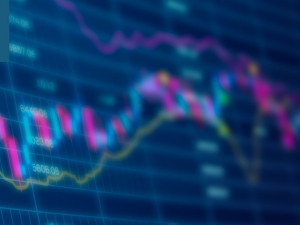
Sterling eying new highs
Morning mid-market rates – The majors
10th February: Highlights
- Retail sales boost to recovery hopes
- Biden plans could drive inflation far higher
- German CPI to predict continued Eurozone deflation
Finally, the Government fleshes out border controls
Criticism of the delays in arranging for the quarantine of those arriving in the country effectively closing the borders was finally addressed by the Health Minister yesterday when he fleshed out the proposals.
The use of hotels near ports and airports will also require those arriving to have two Covid tests while they are isolating and pay £1750 for the privilege.
The economy also showed signs of improvement with like for like retail sales increasing by 7.1% year on year in January versus a 4.8% rise in December. This comfortably beat analysts’ predictions.
The GDP estimate for the three months to January will be released later this morning with estimates of a 0.9% increase the average of analyst’s predictions.
Investors’ net long Sterling positions continue to increase as the market’s view that the UK will be among the leaders if not the first to be able to lift its lockdown.
Friday will see the release of a raft of data that will provide evidence of the level of improvement (if any) in the economy. However, other than preliminary Q4 GDP data, it is leading indicators that are drawing the most attention.
Estimates are for the economy to have fallen by 16% QoQ in Q4 as the lockdown really began to bite.
The pound reached its highest level since the end of April 2018. This will keep inflation in check, but the current rally does appear exhaustive.
It reached a high of 1.3802, closing at 1.3803.
Considering your next transfer? Log in to compare live quotes today.
Dollar falls as stimulus plans taking shape
Larry Summers, Bill Clinton’s Treasury Secretary, voiced his concerns recently but also agreed that there is little alternative. If the country is to recover and see a level of growth that will take it back to pre-Covid levels in the shortest time it is a risk worth taking.
It seems that the package being discussed is the start of the plan with further measures down the road. Economists are starting to feel that the current package, being discussed in Congress, may be too much in itself.
While supply is constrained currently, there is pent up demand growing and when that is unleashed, if it outstrips supply it could see the economy overheat and inflation would be the result.
It is an impossible call to make to guard against inflation when employment is stagnating, and the country is crying out for support but simply moving the goalposts as Fed Chairman Jerome Powell has intimated will not be sufficient.
Commodity prices are already at an all-time high and when the global economy steps out of the shadow of the Pandemic the oil price is likely to move back towards $100. Yesterday, WTI closed at a little above $57.
Inflation data will be released today, and it is likely that price rises will remain fairly benign. However, the market is coming round to the idea that the tidal wave of money that will be thrown at the problem will lead to overheating.
Yesterday, the dollar index retreated again as risk appetite turned marginally more positive. It fell to a low of 90.43, closing at that level.
The daily chart for the index is beginning to look like there was a degree of profit taking on short positions that led it to its recent high, but the downside is again looking vulnerable with support around the 90 level.
Lagarde eying euro strength with concern
That day continues to be a moveable feast with supply of doses of the vaccine irregular and unreliable.
Hungary, as was mentioned recently, is taking matters into its own hands by buying significant supplies from Russia. The Russian vaccine has not, as yet, been approved by Europe’s equivalent of the FDA but its Prime Minister Viktor Orban is willing to defy Brussels to protect its people.
Yanis Varoufakis who was a central figure, as Greek Prime Minister at the time of the Financial crisis has become one of the staunchest critics of the EU.
While he agrees that a Federal budget is a fine notion, it cannot be delivered in the same manner as monetary union. It will require a Federal treasury, which in turn needs a Federal Government which will be formed by the delivery of a Federal constitution.
With a weakening EU Commission losing supporters in Angela Merkel and probably Emmanuel Macron in the next year or so, there is doubt that Ursula von der Leyen could muster sufficient support for the changes necessary.
The ECB is currently awaiting data on the vaccine rollout to decide when it can go again with further support. It seems that anecdotal evidence of the mess the whole programme is in is insufficient or possibly too unbelievable to be relied upon.
Confidence in the entire notion of a European Union remains strong. However, with Sweden studying how Brexit was delivered in the UK and how it could possibly improve on the UK’s performance and Italy a far from settled EU member that could change very quickly.
The euro is back to defying gravity. Yesterday it rose against a weaker dollar to a high 1.2120 closing at 1.2116. It is questionable whether the single currency can muster sufficient support to break resistance at 1.2180 so it could turn into a struggle whether the dollar index or euro is going to make new lows first.

About Alan Hill
Alan has been involved in the FX market for more than 25 years and brings a wealth of experience to his content. His knowledge has been gained while trading through some of the most volatile periods of recent history. His commentary relies on an understanding of past events and how they will affect future market performance.”



